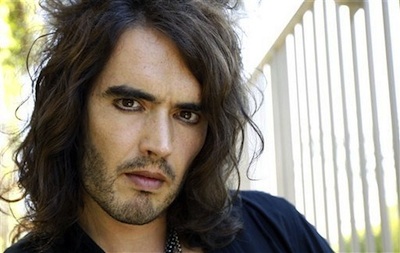  |
Craig White's Literature Courses Dionysus (Gk. Dionysos)
a.k.a. Bacchus, Bromius
associated with Silenus, Maenads, Bacchae / Bacchantes, Satyrs
see also Apollo & Dionysus |
 Roman bronze (with silver) head of Dionysus (early first century) |
|
Among the ancient gods of Olympus, Dionysus is the most puzzling and provocative. The only Olympian to have a mortal mother, Dionysus is not always included in the Olympic pantheon. His status as an immortal with a mortal aspect involves him repeatedly in human affairs, raising questions about his divinity that lead to bloody conflicts and resolutions.
Beyond narrative conflicts, Dionysus's associations with wine-drinking and libertine behavior (particularly involving women followers or maenads) plus live animal sacrifices may lead conservative audiences to avoid the subject and standard Mythology classes to regard Dionysus only in passing.
The most persistent association modern pop culture makes with Dionysus is with wine, especially for cultured groups who wish to associate partying with a high-culture or classical background. See for instance Dionysus Wine & Spirits in Toronto, Ontario, Canada; Dionysus Winery in Canberra, Australia; Dionysus Winery in Sonoma Valley, California; Dionysos Wine in Greece; Dionysos Winery (somewhere); and the Dionysos Wine Club of South Africa.
Wine briefly elevates people to a feeling of godliness; Dionysus's semi-mortal, semi-divine identity may correspond. One needn't drink wine to enter a Dionysiac state of ecstasy, however. Humans become similarly ecstatic, frenzied, or mystic while dancing, worshipping, having sex, fighting in battle, cheering at sports events, political raliies, etc.
Dionysus was also associated with classical Greek theater. Apollo was the Greek god of epic and lyric poetry, but Athens's main theater stood in the sanctuary of Dionysus and so was known as the Theater of Dionysus. Athens's major drama festival was called the Dionysia, and Greek drama likely developed from ceremonies honoring Dionysus including the singing of dithyrambs or hymns in celebration of Dionysus.
|
|
Nietzsche, Birth of Tragedy ch. 10, p. 51: "It is an uncontested tradition that Greek tragedy in its oldest form dealt only with the sufferings of Dionysus, and that for a long time Dionysus was the only theatrical hero. But we may claim with equal certainty that, until Euripides, Dionysus never ceased to tbe the tragic hero, and that all the celebrated characters of the Greek stage—Prometheus, Oedipus, and so on—are merely masks of that original hero, Dionysus."
Dionysus ruled over various "mystery cults" in which a priest or shaman represented the god. In going through initiation, a cult member may have experienced a face-to-face encounter with a god in the same form as the initiate.
The gender dynamics of Dionysus are varied and potentially sensitive. In Greek myth he is often represented as a long-haired young man, and Euripides's Bacchae shows Dionysus cross-dressing Pentheus, who affects feminine behavior. The centrality of a charismatic male figure and ecstatic women may preview behavior witnessed at camp meetings of the Second Great Awakening in the 19th-century United States. Men were excluded from various Dionysian sites and ceremonies.
Dionysus may earlier have been a god of vegetation, so that the festivals of Dionysus (and their rituals that evolved to drama) may have begun as fertility rituals. Along with the influences of wine, such associations may have led to Dionysus's association with sexual excitement and misbehavior in the form of ecstasies that resembled madness. In some traditions Dionysus and his followers not only rip apart wild animals but eat them raw, thus descending to the level of wild beasts, Dionysus helps people escape their human condition in another ecstatic way. Again as at camp meetings of the Second Great Awakening, initiation into Dionysian union may have created an allegiance free not only of kinship ties but of a community beyond the authority of the state.
In addition to Dionysus's associations with Apollo, the history of Dionysus and his followers also crosses considerably with legends and traditions of the ancient poet Orpheus and the practices of Orphism, which advocated renunciation of the world and a return to the primordial unity that preceded diversity and individuation. In some accounts Orpheus met his end, like Pentheus in the Bacchae, by being torn apart by Maenads.

The yellow area indicates the location among current boundaries of Thrace,
the region from which Dionysus came to Greece.
Detienne sees Dionysus as a "god
who comes [as] a foreigner
and remains so, carrying within him the utmost
strangeness" (360).
Sources:
Marcel Detienne, "Dionysos." trans. David M. Weeks. Encyclopedia of Religion, ed. Mircea Eliade. NY: Macmillan, 1987. 358-61
Sir Paul Harvey, ed. Oxford Companion to Classical Literature. 1940.
J.E. Zimmerman, Dictionary of Classical Mythology. 1964. NY: Bantam, 1971.
|
|
|
Rock & entertainment celebrities like Jim Morrison, Mick
Jagger, and Russell Brand are occasionally described as "Dionysiac" or "Bacchic"
on account of their androgynous appeal, their association with altered states of
mind, the frenzied behavior of their devotees, etc.
|
|
|







